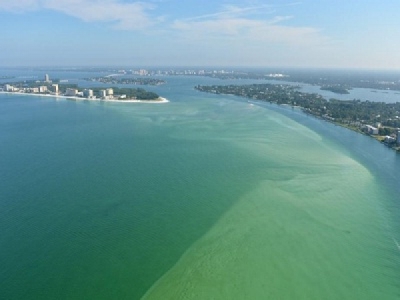
Posted on August 10, 2017
By Zach Murdock, Herald-Tribune
An administrative law judge has agreed to delay hearings on a Siesta Key group’s appeal of a controversial state permit that would allow the dredging of Big Pass sand to rebuild Lido Key beaches.
The hearings had been scheduled for the last two weeks in August, but the Florida Department of Environmental Protection asked the court to delay the proceedings by at least two months after the agency’s lead attorney underwent surgery last week following an injury.
Administrative law Judge Bram D.E. Canter agreed to the move, without objection from any of the parties in the case, and later this month the attorneys will pick a new hearing date, according to a court order filed Friday.
The delay marks another setback in the protracted fight over the plan to dredge more than a million cubic yards of sand from the shoals between Lido and Siesta keys to renourish a starved stretch of Lido beaches on the south end of the key.
The project, led by the U.S. Army Corps of Engineers and the city of Sarasota, has been mired in controversy for years amid Siesta Key leaders’ fears that changes in Big Pass could affect the amount or quality of sand landing on the beach that once again was named the best in the country this year.
When the state environmental office issued a notice that would approve the permits necessary for the dredging last year, the Siesta Key Association, the Florida Wildlife Foundation and local group Save Our Siesta Sand 2 all filed administrative appeals against the permit.
October is now the earliest the groups can try to reschedule, per Canter’s order.
The delays also affect the Siesta Key Association’s lawsuit over the project filed in the circuit court against the Army Corps and city. In April, Circuit Court Judge Lon Arend put that case on hold pending the outcome of the administrative hearings.
For all the legal wrangling this year, though, no one denies Lido Key’s south end is potentially dangerously low on sand. City Manager Tom Barwin frequently notes that the diminished beach could leave the key vulnerable to extensive flooding if even a relatively small tropical storm impacted the area.
Earlier this year city leaders agreed to set aside $2.5 million in tourist taxes as a kind of “insurance fund” for effects related to the project.
City Engineer Alex DavisShaw also is pursuing interim options to bring sand to the beach, but even a nourishment through those means would still take at least two years to implement.
The city can place sandbags on the public walkways in particularly low areas to try to block flooding should a storm system approach the coast, DavisShaw said. That would not require state permits, but it could be done if the city declares a formal emergency just before a storm.
City officials also are working with private property owners, such as the condominium buildings already battered by waves on the south end of the key, on potentially securing state permits for temporary remedial berms, she said.
A more substantial project to add more sand to the beach itself is still under review but could take years before it is approved and funded, DavisShaw said. That project hopes to utilize a “critically eroded” designation for the south end of the key after Hurricane Hermine last year to secure federal funds to dredge a small amount of sand from New Pass on the key’s north end.
But that presents two more problems, DavisShaw said. The Federal Emergency Management Agency now says that because the north end of Lido has not critically eroded it might not qualify for federal funds and is now reviewing it again.
The city also shares dredging in New Pass with Longboat Key, which just used sand from the channel last year to renourish its beaches. It could be another two years before enough sand has accumulated there again to dredge it for Lido Key, DavisShaw said.
Trucking in sand isn’t an option because it’s up to five times more expensive than dredging, which likely would lead FEMA to pull any financial support for the project because it’s not cost effective, she said. A $20 million dredging project in which the city must contribute only $4 million could suddenly snowball into a $100 million project that the city must fund all on its own, she said.
All of which leaves Lido Key in the lurch for the foreseeable future while leaders throughout the area navigate a sea of permitting and legal challenges.
“Depending on where we are with this Big Pass project, we’ll have to reevaluate (the New Pass) project in about two years, but I don’t expect there’s going to be enough sand back in there sooner than that,” DavisShaw said. “I expect it will be about six months before we would know where that (FEMA funding) shakes out and so then we’ll have something to talk to the city manager about on how to move forward.”
Source: Herald-Tribune





